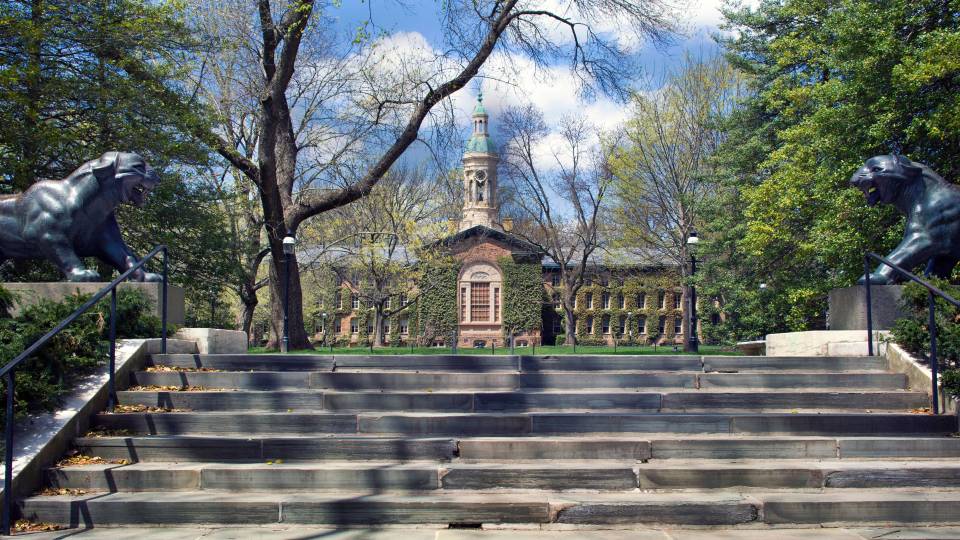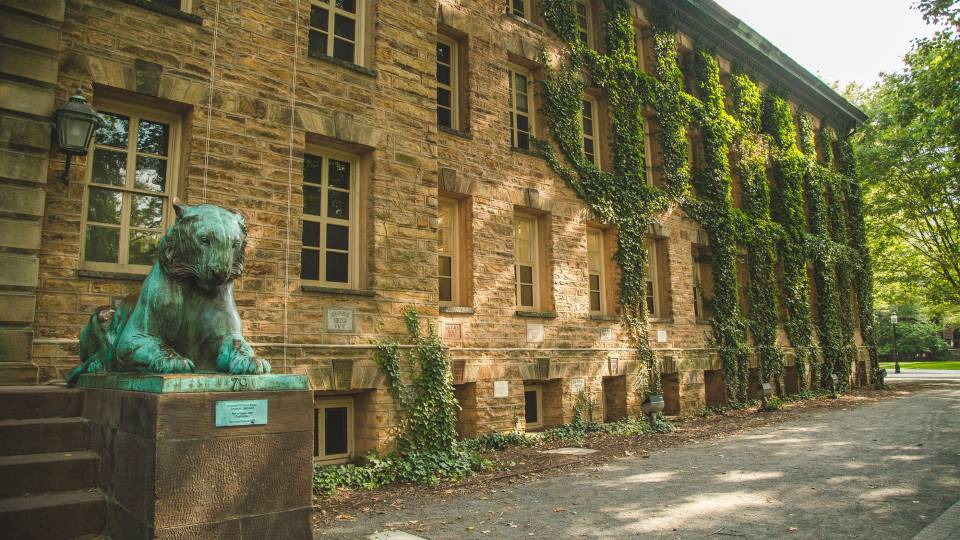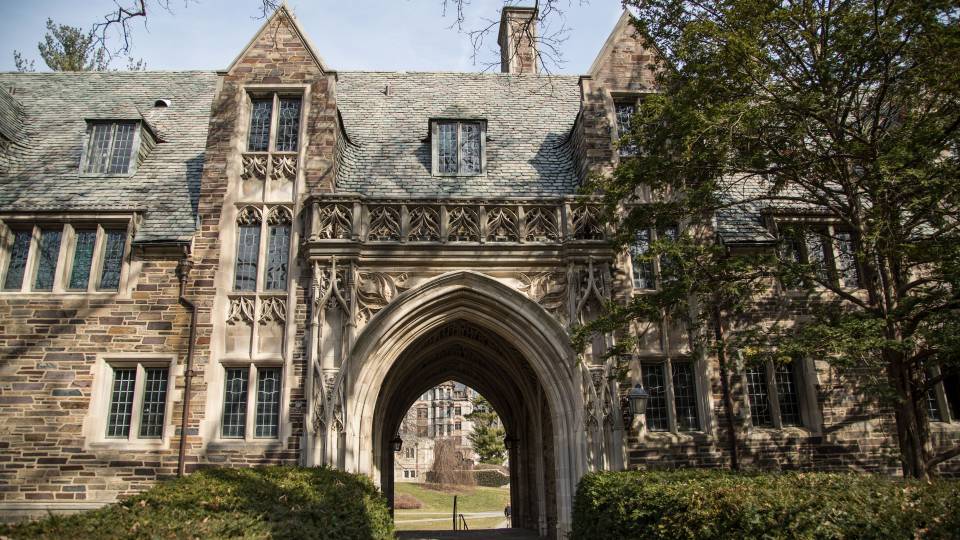The executive committee of the Council of the Princeton University Community (CPUC) has endorsed recommendations (.pdf) made by a Special Task Force on Diversity, Equity and Inclusion to improve University policies, practices and programming. The University will begin implementing some of the recommendations immediately.
With President Christopher L. Eisgruber's endorsement, Provost David S. Lee has authorized budget allocations to:
- Add a senior administrator in the Office of the Vice President for Campus Life focused on diversity and inclusion;
- Strengthen the Carl A. Fields Center for Equality and Cultural Understanding as a home base for students of color through additional staffing, program enhancement and a study of space needs;
- Increase funding for student initiatives, including those housed in the Fields Center, the Women's Center, the LGBT Center and identity-based student organizations; and
- Create a new Provost's Fund for Cultural Studies (.pdf), which will support current faculty members, faculty visitors and teaching postdoctoral fellows to fill curricular needs in cultural studies fields.
"To achieve the excellence to which we aspire, we must welcome talented people from all backgrounds to Princeton, and we must enable them to flourish. To deepen our understanding of the world and prepare students for citizenship and leadership in diverse societies, we must cultivate a campus climate that encourages constructive exchange among people with differing perspectives and experiences," Eisgruber said in responding to the report (.pdf).
"The task force has generated a report and recommendations that are thoughtful, practical and impactful. Its work will make a material difference to the future of this University, and I am confident that we will be able to take significant action in all of the areas addressed by the task force."
The task force was established by the executive committee in December, after Eisgruber charged it with developing recommendations for assessing the campus climate and improving University policies, practices and programming regarding diversity, equity and inclusion. Eisgruber also charged the executive committee with encouraging public dialogue on these topics, which became the subject of campus demonstrations after grand juries chose not to indict police officers in the deaths of two unarmed African American men, Michael Brown in Ferguson, Missouri, and Eric Garner in Staten Island, New York.
The 51-member task force — made up of students, faculty and administrators — included a steering committee that Lee chaired and working groups on policy and transparency, academics and awareness, and structure and support.
To assess the campus climate, members solicited feedback through meetings, one-on-one conversations and online; monitored the anonymous comments made online; and reviewed existing data from student surveys and focus groups.
They found that while "most students are thriving at Princeton … students with minority identities often have a less positive experience" that involves harassment, discrimination, and disruptive or unproductive interactions because of their identities. A negative campus climate in which people are disrespected and marginalized, the report states, inhibits the full and equal participation of all members of the University community in intellectual, social and residential activities.
The task force's remaining recommendations will be discussed further with faculty committees, the new dean of the college and the new vice president for campus life. (Dean of the College Valerie Smith and Vice President for Campus Life Cynthia Cherrey will be stepping down this year and searches for their successors are under way.)
The task force's full recommendations, in six key areas, follow.
The student experience
- Centralize and strengthen support for diversity and inclusion efforts through hiring a senior administrator in the Office of the Vice President for Campus Life to coordinate such efforts.
- Expand, coordinate and publicize the efforts of existing identity-based resources for undergraduates and graduate students within the Fields Center, Women's Center, LGBT Center, Office of Disability Services, Sexual Harassment/Assault Advising, Resources and Education (SHARE), Davis International Center, Office of Religious Life, Graduate School, and residential colleges.
- Develop a strategy and resources for addressing the social and cultural needs of low-income and first-generation students.
- Fund and provide training for additional diversity and inclusion programming in the residential colleges.
- Reconceptualize and strengthen the Fields Center to focus primarily on students of color, including assessing its location, adding funding and staff, and creating a diversity peer education program based on the SHARE model.
- Increase funding for student initiatives at both the undergraduate and graduate level.
- Instruct the Task Force on the Residential College Model, part of the University's strategic planning effort, to examine making every residential college a four-year college to make the undergraduate experience more cohesive.
- Use the strategic planning effort's Task Force on the Future of the Graduate School to conduct a full assessment of the Graduate School's social and residential experience and propose ways to combat isolation and foster community, with a focus on students with minority identities.
Addressing bias, discrimination and harassment
- Strengthen the systems and resources for those who experience bias, discrimination and harassment, such as a more visible resource for people who have experienced bias and increased training for campus leaders.
- Improve bias response at the eating clubs through training and transparency.
- Better educate the campus community about policies and disciplinary systems.
Academic and curricular offerings
- Recognize and respond to student interest in areas such as (but not limited to) African American studies, Latino studies, Latin American studies, gender and sexuality studies, Asian American studies, Native American studies, African studies, and disability studies.
- Instruct the strategic planning effort's Task Force on General Education to consider how issues of diversity and culture can be integrated in the curriculum, including whether undergraduates should have a distribution requirement related to diversity and culture.
- Offer funding for developing new curricular offerings related to the interdisciplinary study of diversity and difference and for hiring permanent faculty members whose scholarship may fall between the boundaries of academic units.
- Encourage teachers of first-year writing seminars to incorporate diversity and difference into seminar topics.
- Facilitate student input in developing new academic initiatives related to the interdisciplinary study of diversity and difference, including publicizing opportunities for students to serve on the Committee on the Course of Study.
- Enhance undergraduate academic advising to guarantee access to academic support with initiatives such as increased involvement of graduate student and faculty mentors and development of student cohorts.
Learning about diversity and equity outside the classroom
- Develop clear values, goals and outcomes for all diversity and inclusion training, and coordinate and measure these efforts.
- Improve student orientation for undergraduates and graduate students by incorporating lessons from Outdoor Action's model of leadership training and group programming; revamping the "Reflections on Diversity" freshman orientation session to introduce core concepts and provide training on responding to bias; and expanding the diversity component in the Graduate School's orientation and addressing these issues in departmental orientations.
- Create a student training curriculum of messages and skills related to diversity and inclusion beyond orientation, similar to the approach used by the University's SHARE program. Include diversity and inclusion as a core value in recognizing, monitoring and training student organizations and their officers, and identify ways to incorporate this training at key milestones in the undergraduate experience.
- Increase learning opportunities related to diversity, inclusion and unconscious bias for faculty members, particularly those in leadership and advising posts, as well as instructors and graduate students serving as assistants in instruction.
- Expand course evaluations to solicit feedback on diversity, equity, inclusion and climate in classrooms.
Access to and use of data
- Explain what data the University collects (although all of the data may not be publicly available due to privacy considerations).
- Through the Office of Institutional Research and Office of Institutional Equity and Diversity, improve data collection to fill in gaps in knowledge about the campus climate. Collect more data on socioeconomic status at the undergraduate and graduate level, gather more survey data on all undergraduate classes (not just seniors), survey graduate students more frequently, and work with student groups to improve survey response rates.
- Improve data sharing by developing a standard for how data is reported and integrated for diversity purposes, creating an annual diversity report or dashboard with contextual explanations, and creating a curated set of core data related to diversity and campus climate.
- Improve data presentation by presenting all income categories separately rather than aggregating, separating race from nationality, and indicating when fewer than 10 individuals make up a particular demographic category.
Public programming
- Provide funding and administrative support for public programming for the 2015-16 academic year, beginning with a series of themed public conversation events in fall 2015.




